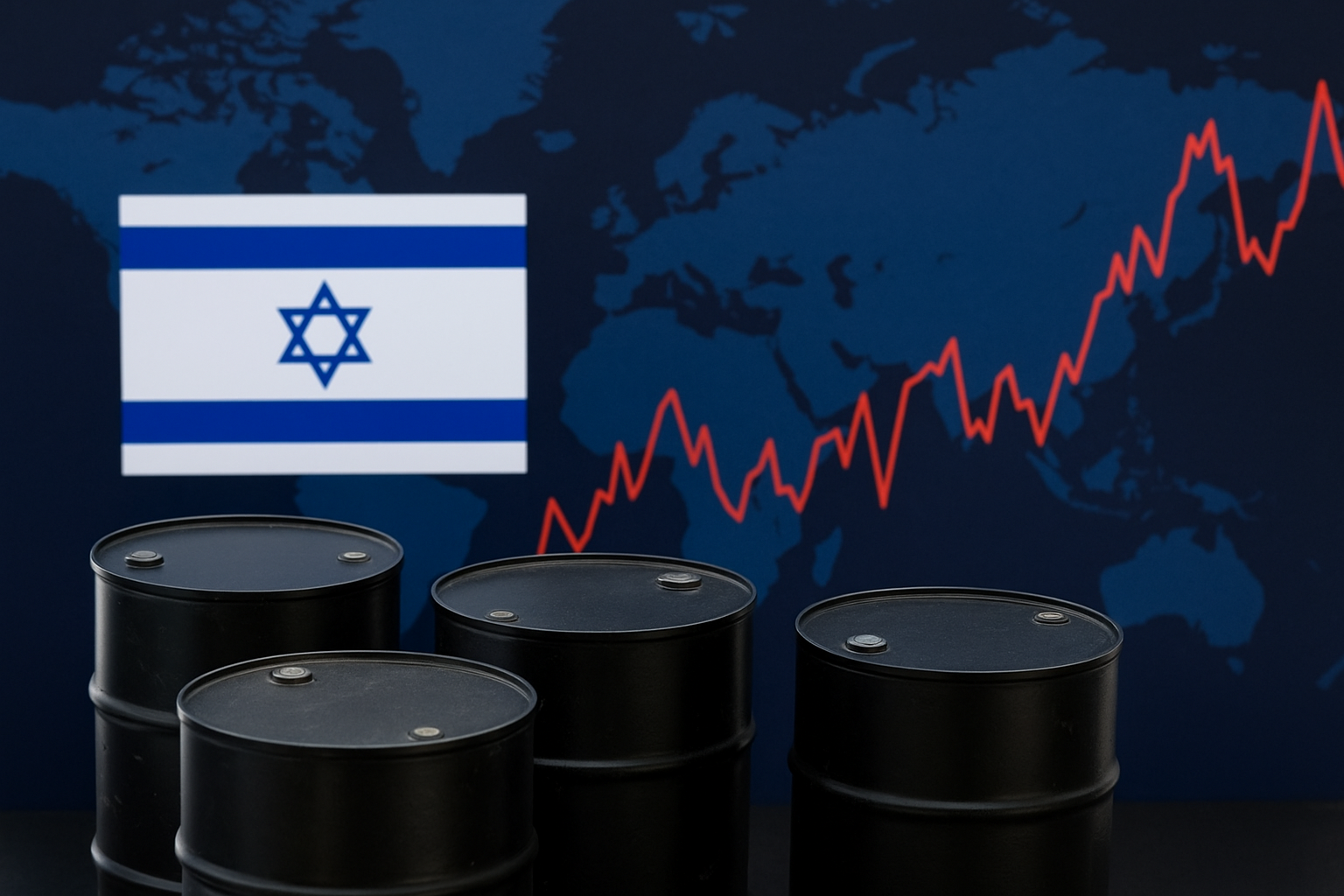Israel Strike on Doha Raises Global Market Volatility
By Tredu.com • 9/9/2025
Tredu

Energy Prices Surge Amid Gulf Tensions
Reports of an Israeli strike on Doha, Qatar, on Tuesday jolted global markets, with investors moving swiftly to reprice risk across commodities, currencies, and equities. While official details remain limited, the event heightened fears of wider instability in a region critical to global energy flows.
Crude oil futures jumped in early trading, with Brent crude climbing more than 5% to above $90 a barrel. Analysts noted that traders were factoring in the potential for disruption to Qatari liquefied natural gas (LNG) exports, which account for roughly one-fifth of global supply. European natural gas futures rose nearly 8%, reflecting concerns over possible bottlenecks if Gulf infrastructure or shipping lanes come under strain.
Safe-Haven Assets Attract Capital
The immediate market response extended beyond commodities. Gold prices rose more than 2%, reaching a six-week high, while U.S. Treasury yields fell as demand surged for government debt. The Japanese yen and Swiss franc both gained against major currencies, underscoring investors’ preference for traditional safe havens.
Currency strategists said the U.S. dollar index also strengthened, not only due to flight-to-safety flows but also on expectations that higher energy costs could weigh on European and Asian economies more heavily than on the U.S.
Equities Feel the Pressure
Global equities reflected caution. European benchmarks opened lower, dragged down by transport and airline shares on fears of higher fuel costs. Broader Asian indexes also slipped, led by declines in South Korea and Japan.
By contrast, defense sector stocks and certain energy producers gained, as markets adjusted to an environment where geopolitical risk premiums are likely to remain elevated.
Broader Economic Implications
Economists warn that the financial implications will depend heavily on whether the incident proves to be an isolated clash or the start of a prolonged confrontation. A sustained escalation in the Gulf could reshape global financial conditions in several ways:
- Energy Inflation Risks: Higher oil and gas prices could complicate efforts by central banks to bring inflation back to target, particularly in the U.S. and Europe.
- Trade Route Vulnerability: Shipping lanes in the Persian Gulf remain critical for oil and LNG flows; disruptions could increase freight costs and insurance premiums.
- Global Investment Flows: Heightened geopolitical uncertainty may reduce capital inflows to emerging markets, especially in the Middle East and North Africa.
Policy Outlook and Market Sensitivity
The Federal Reserve, European Central Bank, and Bank of Japan are all closely monitoring developments. Economists say a sustained spike in energy prices could delay interest-rate cuts, while sharp declines in business and consumer confidence could have the opposite effect.
“Markets are highly headline-driven right now,” said one London-based strategist. “Any sign of de-escalation could unwind the move in oil and safe havens, but continued uncertainty will keep volatility high.”
Conclusion
The reported strike on Doha illustrates how rapidly geopolitical events can ripple through financial systems. Within hours, oil and gas prices surged, safe-haven demand strengthened, and equities came under pressure. The core theme: instability in the Gulf underscores the fragile balance between energy supply security and financial market stability.

How to Trade Like a Pro
Unlock the secrets of professional trading with our comprehensive guide. Discover proven strategies, risk management techniques, and market insights that will help you navigate the financial markets confidently and successfully.


